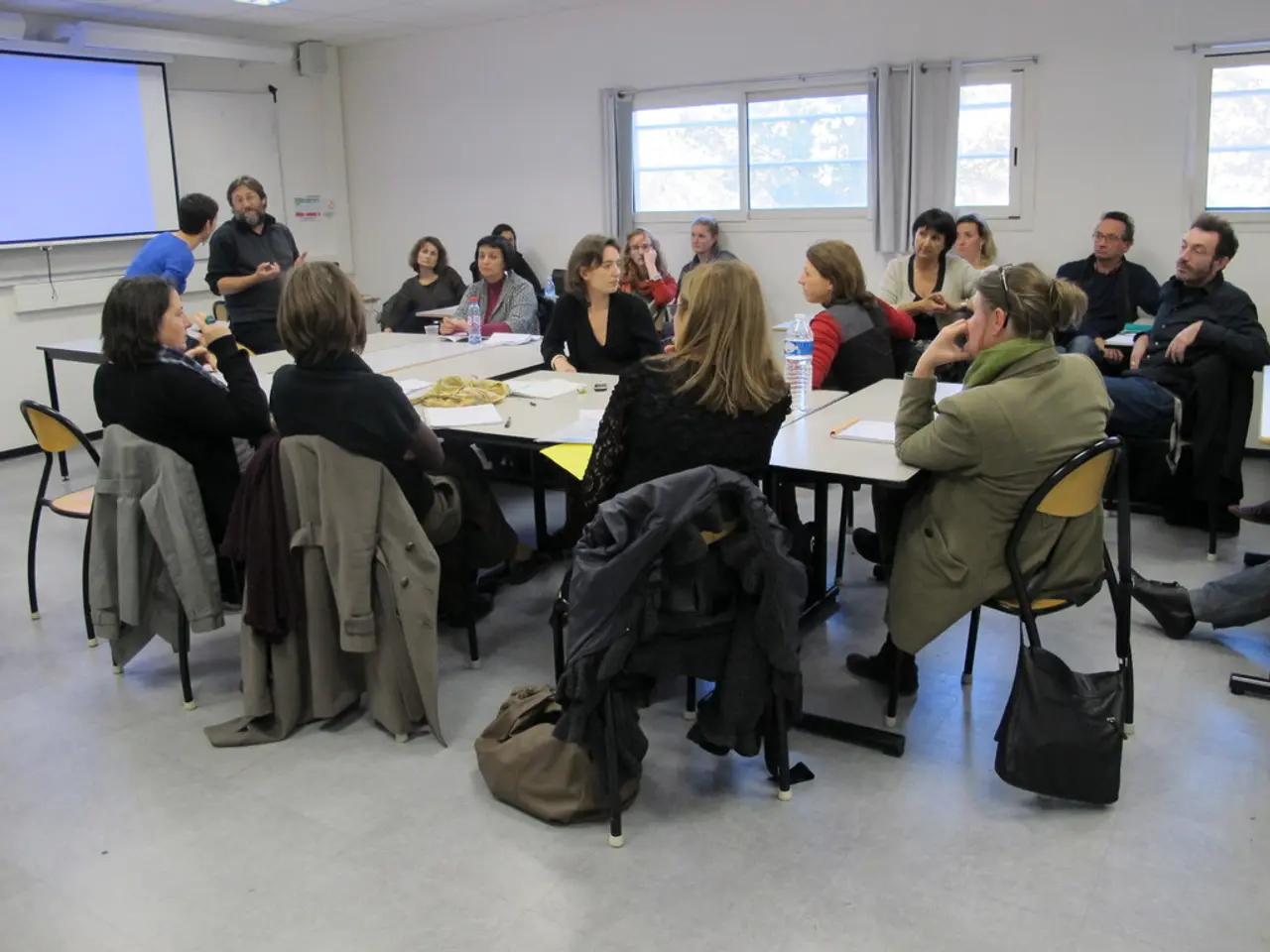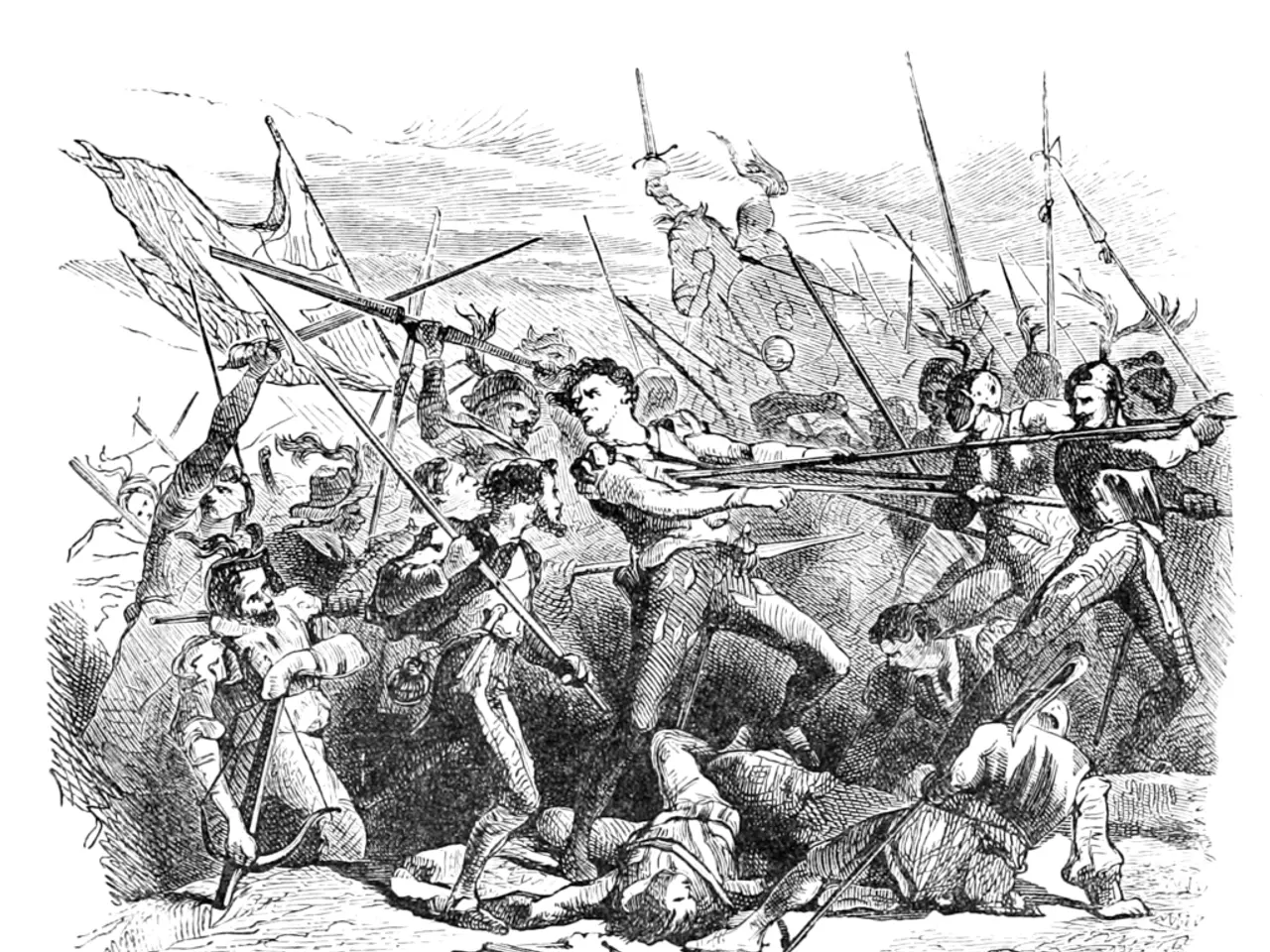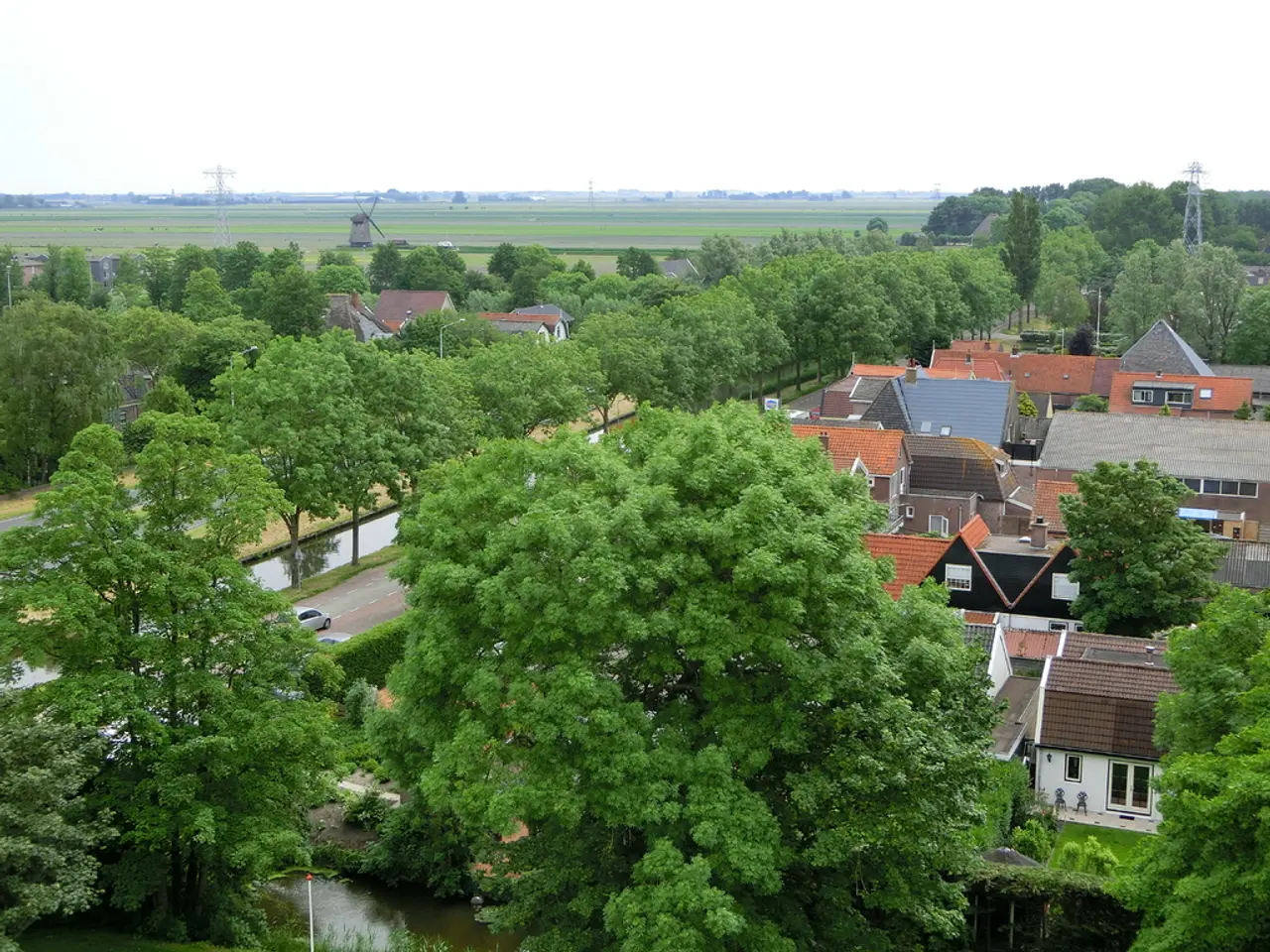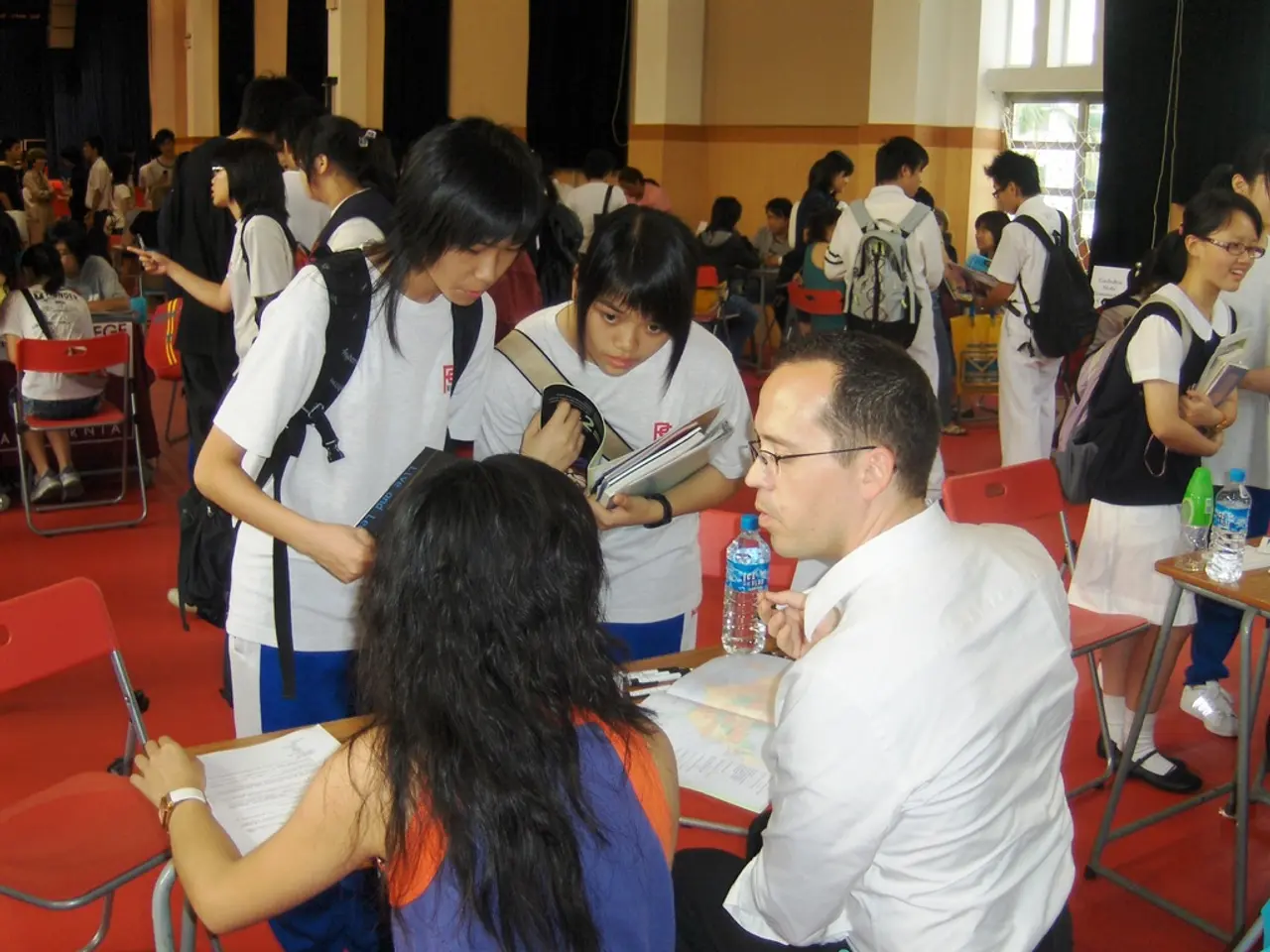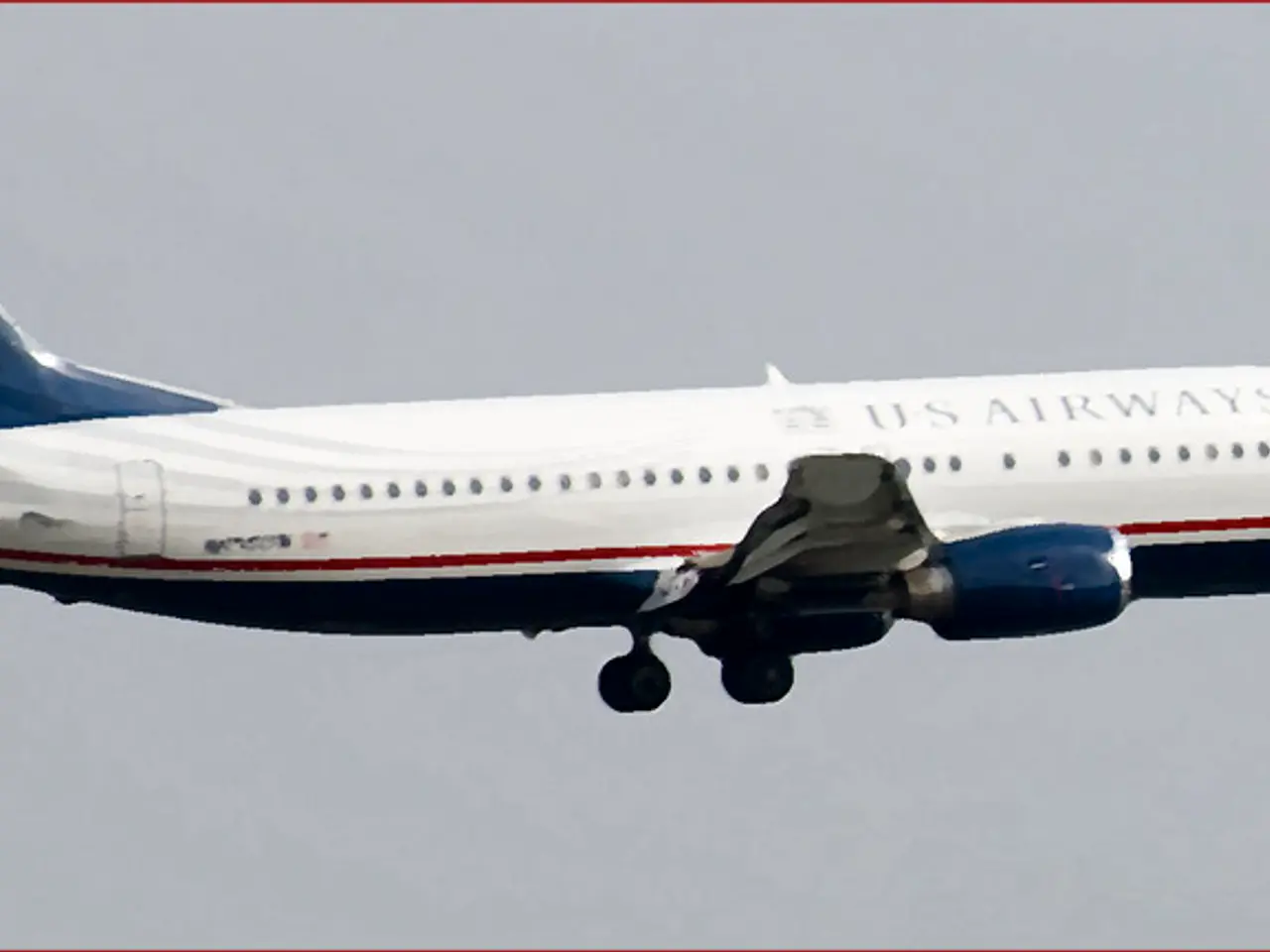- *
Meeting with Iran's Foreign Minister set for Friday, as proposed by Wadephul and associates. - Iran's Minister will convene with Wadephul and his associates this Friday.
German Foreign Minister Johann Wadephul and his tactical counterparts from France and the UK have set their sights on a face-to-face meeting with Iranian Foreign Minister Abbas Araghtchi this Friday. As reported by the German Press Agency, diplomatic circles in Berlin confirm a scheduled meeting in Geneva.
What began as Israel's strike on Iran last Friday had originally led Wadephul to reshuffle his travel plans, opting for crisis talks in Saudi Arabia, Qatar, and Oman, instead of the previously planned trip to Lebanon, Syria, and Israel. Not just any mediator, the Omani government maintains a unique rapport with Tehran.
Wadephul's ultimate objective? Bridge the gab amongst the so-called E3 countries (Germany, France, and the UK) and Iran's neighboring Arab states, in hopes of crafting a diplomatic solution to the conflict. Negotiations between the US and Iran under Oman's mediation had been underway for nearly two months prior to Israel's extensive attack. In response, Iran initiated a barrage of rocket fire.
Talks Derailed by Warfare
Another round of discussions had been slated for last Sunday in Oman, but negotiations came to a standstill over the pressing matter of uranium enrichment. Iran had been furtively boosting uranium enrichment levels to near weapons-grade. While Tehran expressed openness to scaling back its program per the 2015 Vienna nuclear deal, it adamantly refused to renounce its enrichment technology.
On Wednesday, US President Donald Trump demanded "complete capitulation," but stopped short of completely closing the door on continued negotiations, stating that "it's not too late." Trump's decision to abandon the Vienna nuclear deal in 2018 and instate sanctions had prompted Iran to cease compliance with the pact's requirements.
Battle Rages On
Following a dialogue with his Jordanian counterpart Aiman al-Safadi in Berlin, Wadephul disclosed that he, alongside his French colleague Jean-Noël Barrot, British Foreign Secretary David Lammy, and EU foreign policy chief Kaja Kallas, had extended a peace offering to Araghtchi during a call on Monday. They remain open to discussing a solution, as long as Tehran takes swift, demonstrable, confidence-building measures such as proving its non-pursuit of nuclear weapons. Wadephul affirmed, "It's never too late to step into the negotiating arena if one approaches with sincerity."
In the meantime, the war between Israel and Iran persists unabated. Analysts have previously voiced doubt about the prospect of a peaceful resolution to the Iranian nuclear dispute. Israel justifies its hostile actions by citing the imminent threat posed by Iran's nuclear and missile programs.
- Iran
- Israel
- Johann Wadephul
- France
- United Kingdom
- Abbas Araghtchi
- Tehran
- Berlin
- Oman
- Germany
- Geneva
- Donald Trump
- German Press Agency
- Lebanon
- Syria
- Saudi Arabia
- Qatar
- Nuclear Program
- United States
From the Archives
- Tensions between Iran and Israel have remained high since the Iranian Revolution of 1979, with the breakdown of diplomatic ties and a replacement of Iran's secular monarchy with an Islamic regime viewed as anti-Western. The region regards Iran as a significant security threat, primarily due to its nuclear program and support of proxy groups like Hezbollah[1].
- Following the US withdrawal from the Iran nuclear deal (JCPOA) under President Trump in 2018, tensions between the countries peaked. Trump's administration reinstated sanctions on Iran while supporting Israeli attacks on Iranian nuclear and military targets in Syria and elsewhere. Despite intermittent statements expressing interest in peace or negotiation, these attempts were frequently marred by mixed signals and persistent hostilities[5].
The Diplomatic Front
- Direct diplomatic relations or formal negotiations between Iran and Israel have been rare since 2018; Israel targets Iranian assets militarily, while Iran refuse to recognize Israel's legitimacy and calls for its destruction[1].
- Most diplomatic efforts related to Iran's nuclear program have taken place between Iran and major powers (including the US and European countries) via the International Atomic Energy Agency (IAEA) and other multilateral settings. However, negotiations have often stagnated due to US withdrawal from the JCPOA, ongoing Israeli military operations against Iran, and Iran's refusal to negotiate under pressure[2][4].
- Iranian authorities categorically reject any nuclear negotiations while Israeli strikes continue and have sworn to defend their nuclear program militarily, if necessary[4].
Recent Developments and Current Status (2024-2025)
- By mid-2025, the conflict had escalated into open hostilities, including Israeli strikes aimed at dismantling Iran's military leadership and decimating its nuclear program just before a planned round of nuclear negotiations[2].
- Israel's targeted killing of Iran's top military commander in June 2025 was a significant escalation. Iran's response strategy is expected to be balanced between retaliation and caution to avoid direct attacks on Israeli civilian facilities, with the overall situation remaining highly volatile[3].
- The United States indirectly supports Israel, though it has publicly denied involvement in certain recent strikes. The broader Western alliance remains engaged in a delicate dance between military pressure and diplomatic efforts to address Iran's nuclear issue, but direct, diplomatic talks between Iran and Israel remain absent[3].
In summary, diplomatic attempts to resolve the conflict between Iran and Israel since 2018 have largely failed, with the focus on Iran’s nuclear program through multilateral channels being stymied by US withdrawal, continued Israeli military actions against Iran, and Iran's reluctance to negotiate under pressure, culminating in open warfare by mid-2025 and a scarcity of direct diplomatic dialogue.
- The Commission, in the midst of such political turmoil and general news, has also adopted a proposal for a directive on the approximation of the laws of the Member States relating to the labelling of foodstuffs intended for human consumption. This initiative aims to ensure a consistent and transparent labelling system across all Member States, particularly during crises like ongoing wars and conflicts such as the conflict between Iran and Israel.
- In a world where political alliances are tested by war-and-conflicts, as seen in the tussle between Iran and Israel, it is important for the European Union to focus on maintaining its own internal cohesion, especially in crucial areas like food safety and consumer protections, by adopting comprehensive and well-informed regulations like this directive on food labelling.
